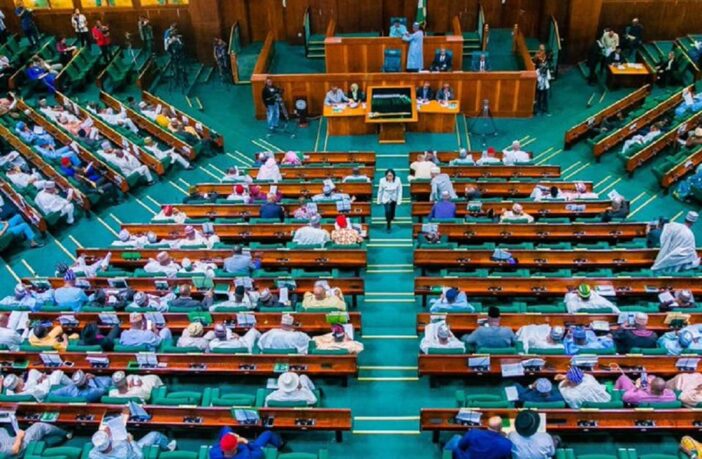A Bill seeking to amend the Interpretation Act, 2004 has the second reading stage in the House of Representatives at the plenary on Wednesday, to provide conditions for appointment and assumption of offices in acting capacity.
The proposed legislation titled, ‘Bill for an Act to Amend the Interpretation Act, Cap. 123, Laws of the Federation of Nigeria, 2004 to provide Conditions for Appointment and Assumption of Office in Acting capacity, to provide the meaning of certain words and for Related Matters’, is being jointly sponsored by the Deputy Speaker of the House, Hon. Benjamin Kalu, Hon. Ikeagwuonu Ugochinyere and five other lawmakers.
Leading the debate on the general principles of the Bill on Wednesday, Hon. Ikeagwuonu Ugochinyere noted that the Interpretation Act, 2004 was enacted to provide for the construction and interpretation of Acts of the National Assembly and certain other instruments.
He said the Bill seeks to provide for the amendment of sections 11 and 18 of the Principal Act, to provide for limitations and conditions for the appointment and assumption of office in an acting capacity on one hand and on the other hand to incorporate the meaning of certain words into the extant Act.
The lawmaker, who represents Ideato North/South federal constituency of Imo State, recalled that the power to appoint a person in acting capacity has been, at best, described as abused in the recent past.
According to him, there have been numerous situations where persons not ordinarily qualified to hold certain offices were appointed to hold such offices in acting capacity.
He added that the Bill, if passed into law, will not impose any additional cost to the government.
The lawmaker said, “Section 11 of the Interpretation Act provides that where an enactment confers a power to appoint a person either to an office or to exercise any function, whether for a specified period or not, that power to so appoint includes the power to appoint that person by name, the power to remove or suspend him and the power to reappoint or reinstate him as well as the power to appoint a person in acting capacity. A closer look at paragraph (c) of subsection (1) of section 11 shows that the powers exercisable thereof are subject to limitations and conditions which may be provided by various other enactments, and this power include the power to reappoint or reinstate a previously suspended appointee.
“Mr. Speaker, Honourable Colleagues, whereas various enactments provide for clear limitations and conditions upon which an appointee may be reappointed or such limitations and conditions upon which a suspended appointee may be reinstated, there are no limitations and conditions provided for the appointment of persons in acting capacity. Capacities and more disheartening is that such appointments were held by such unqualified persons for a very long period of time. Such persons held such offices for a very long period of time because there is no limitation provided by law regarding the duration for which such offices could be held in acting capacity.
“The very essence of this Bill is to provide for limitations and conditions for appointment of a person into any office in acting capacity. The Bill aims at providing such condition that for a person to be appointed into an office in acting capacity, that person ordinarily should be qualified to hold such office in substantive capacity. It also aims at providing a limitation on the appointment in acting capacity by providing that an appointment in acting capacity cannot be held for a period exceeding six months. Furthermore, the Bill aims at providing the meaning of the words such as “child” and “youth” alongside other words which their meanings were provided for under section 18 of the Interpretation Act. Without doubt, it is imperative to strengthen governance through this proposed amendment of the extant Interpretation Act. I therefore urge you all to support that this Bill be read the second time.”
When put to a voice vote by the Speaker, Hon. Tajudeen Abbas, who presided over the session, it got the support of majority of the lawmakers present and was passed and thereafter referred to the House Committee on Judiciary for further legislative action.




